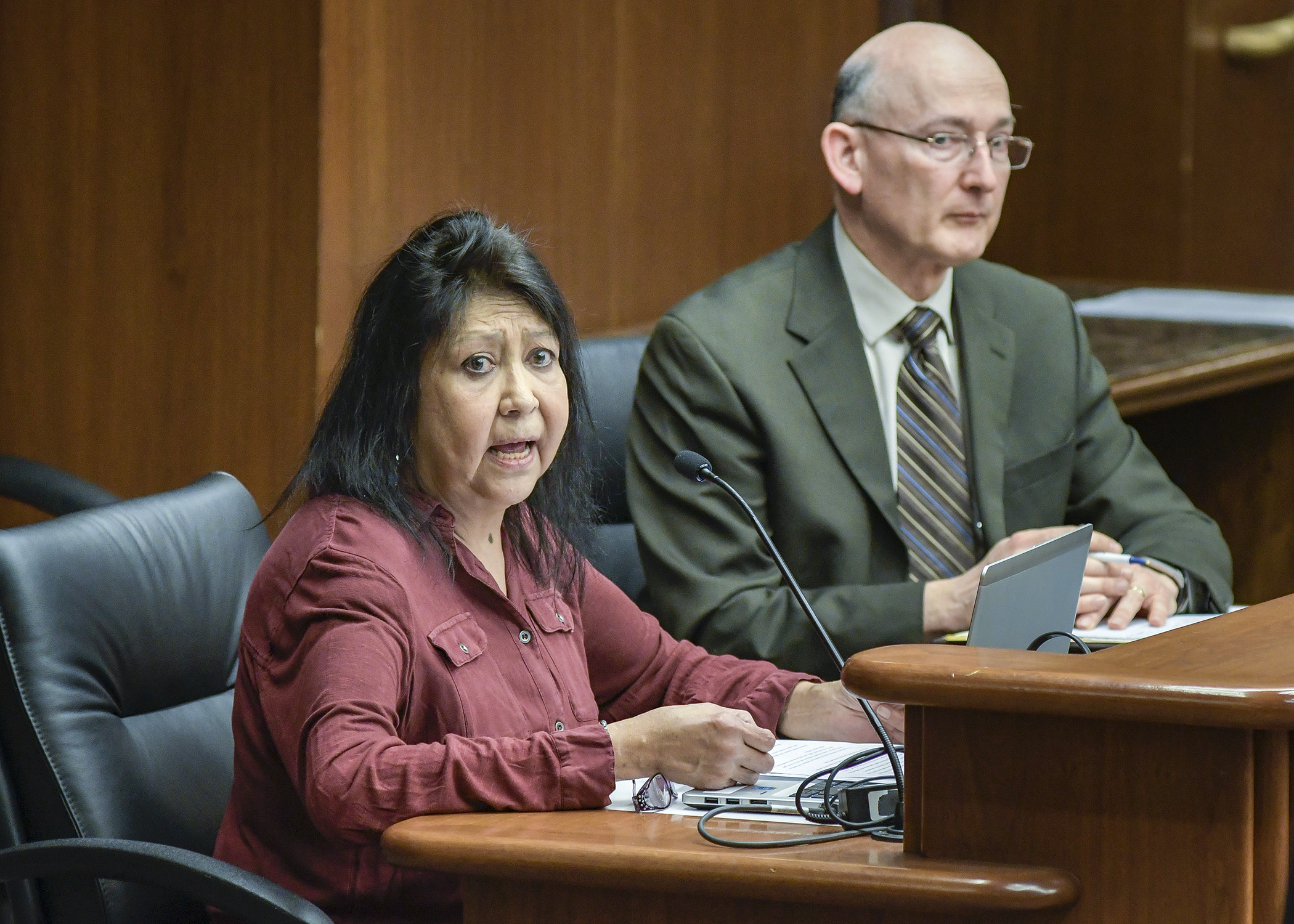Wolf hunt prohibition draws pack of supporters

An offer to display pictures of a calf killed by wolves may not have drawn howls, but groans of displeasure chorused from the audience during Wednesday’s hearing on a proposal to prohibit recreational hunting of wolves.
Under current statute, the Department of Natural Resources can establish an open season for the gray wolf if it is delisted under the federal Endangered Species Act. Less than two weeks ago, the U.S. Fish and Wildlife Service proposed doing that. It has until March 2020 to finalize or withdraw the proposal.
No matter what the federal government chooses to do, Rep. Peter Fischer (DFL-Maplewood) proposes prohibiting an open season on wolves. The House Environmental and Natural Resources Policy Committee took no action at the informational hearing on HF1327.
Referencing Minnesota’s last wolf hunt in 2013, Fischer said the 25 percent decrease in the wolf population was directly linked to a 25 percent increase in predation events afterward. That was due to disruption of wolf packs and their social order, he said.
Fischer stressed the proposal preserves statutory language currently protecting farmers and ranchers faced with wolf predation.
The DNR currently estimates that the state has 2,655 wolves, a number questioned by bill supporters.
The methodology assumes wolves exist where there is no evidence of a pack in residence based on what the DNR considers the suitability of a location, according to Joseph Wolf, a board member at Howling For Wolves. He said the estimate is based on limited sampling of collared wolf packs in the northeast section of the state and uses too many assumptions, making the results questionable.
Nor does the population estimate used for determining wolf pack stability factor in genetic diversity. Wolf suggested that information is crucial to understanding wolves’ ability to survive long term.
Some of the support came from a deeply spiritual conviction, as evinced by Sandra Skinaway, tribal chairwoman for the Sandy Lake Band of Mississippi Chippewa.
The Anishinaabe Ojibwa people of Minnesota have passed many resolutions opposing recreational wolf hunts and removal of federal protections of the gray wolf, Skinaway said.
In their origination stories, the wolf is the brother of original man, the Anishinaabe, she said.
“The creator tasked them to travel throughout the Earth and name everything. Once this task was completed, the creator told the wolf and original man that they had to take separate paths, but said that what happened to one would happen to the other and that each would be feared, disrespected, and misunderstood by the people that would later join them.”
Skinaway said her people see in the wolf a parallel to their own experience, one of loss of land and as such they are compelled to speak for “this majestic animal.”
Wolves have a critical ecological role, helping maintain a healthy balance of herbivores on the landscape, Skinaway said. Using methods to reduce interaction paired with the wolf’s natural instinct to avoid humans is a more sensible approach to dealing with depredation issues.
Tim Spreck, representing the Minnesota Trappers Association, and Cory Bennett, representing the Minnesota Deer Hunters Association, were among those advocating to maintain current law, saying the DNR needs to be able to effectively manage wolf populations.
The current population is well in excess of the 1,600 identified by the state as a stable, recovered population, according to Bennett.
“This is a top predator and, as such, needs management,” Spreck said.
A companion, SF927 sponsored by Sen. Chris Eaton (DFL-Brooklyn Center), awaits action by the Senate Environment and Natural Resources Policy and Legacy Finance Committee.
Related Articles
Search Session Daily
Advanced Search OptionsPriority Dailies
Legislative leaders set 2026 committee deadlines
By Lisa Kaczke Legislative leaders on Tuesday officially set the timeline for getting bills through the committee process during the upcoming 2026 session.
Here are the three deadlines for...
Legislative leaders on Tuesday officially set the timeline for getting bills through the committee process during the upcoming 2026 session.
Here are the three deadlines for...